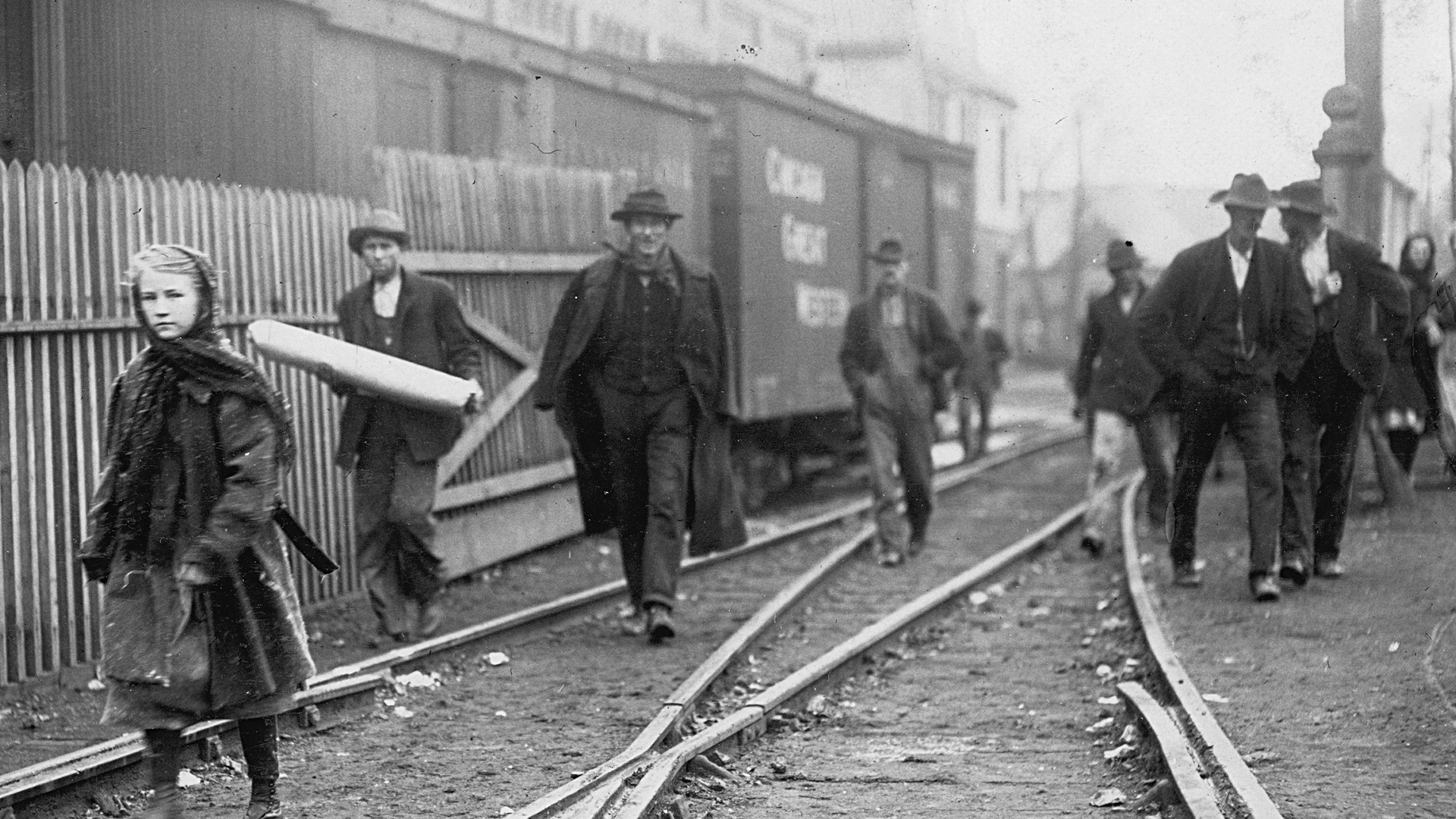Why Worker Writing Matters

Why work?
The Notes from Below project is centred around a simple focus: that the experience of work matters for understanding the world and struggling to change it.
We focus on work for two reasons. First, that work is central for understanding capitalism. From an individual’s perspective, it might be difficult to see how capitalism relies on our labour. Yet, without us working, capitalism as a system would shut down. For example, we can see this playing out for the moment during the COVID-19 crisis. As more of us are forced to work from home or are unable to work because of closures, the world economy is slowly grinding to a halt. Governments in the US and the UK, would rather risk our health and our lives to keep us at work, in order to save companies’ profits. Therefore, we believe that through sharing our experiences of work across different parts of the economy, we can begin to build a picture of how capitalism operates.
The contradictions of capitalism are expressed in the division between the employer and us as workers (whether they have employee status, formal contracts, or not). When we agree to work, there is always a negotiation that takes place about how hard we will work - whether explicit or not. For the employer, they want the most out of what they have just purchased: our time. As workers, we have different interests. Whether we want to try and avoid work as much as possible or not, or be paid a greater share of the profits we produce, we want to have some time and energy left for the rest of our life once the workday ends.
This basic contradiction comes up again and again. Perhaps as clearly as a struggle over the length of our workday, perhaps over the intensity or speed of our work, or maybe about control over how our work is organised and carried out. It is expressed in the form of the bullying supervisor, the demand for unpaid overtime, oppressive managerial practices, the lack of health and safety equipment, the use of new technology, the exhaustion at the end of the day, the worries about stable employment - these are all smaller expressions of the overall structure of society. The experience of each of these matters for understanding the world.
Secondly, because of the system’s reliance on our work - both in our particular workplaces and generally across the economy - workers also have the potential to wield significant collective power. Through the processes of work we have shared experiences that bring us into contact with other workers: our struggles over specific issues at work can be connected to that of others as we discover that managers and employers use similar strategies and levers of power to make us work harder. In the process we also discover that if we take them on together, we can fight back and undermine their plans. This is why, at the most fundamental level, we believe that it is necessary for us to build new networks that share stories and experiences about our workplaces, our employers’ strategies and our responses to them - in order to collectively identify what worked and what did not.
This is why we think our experiences of work matter.
When we push back against one part of the work process, whether striking for higher wages or just demanding a new kettle in the breakroom, the implications of this go way beyond the individual workplace. New tactics of resistance and collective power are constantly being tested in practice. Many of these are not shared - or they become lost as people move on to new workplaces, retirement, or unemployment. However, managers certainly learn from each other, sharing tactics and techniques to keep workers in line through employers conferences, company handbooks and training days, and even sector wide blacklists.
While many employers talk of “human resources”, we know that we have a life beyond our work. That life matters too. It points towards other ways of organising society - in the bonds and solidarities we develop with each other. These support us through work, but also shape our ability to respond and collectively organise.
Why workers’ inquiry?
This is why at Notes from Below, we have tried to develop ways to give a voice to workers to describe, analyse, criticise and - hopefully - help people to change their own conditions of work. The aim is to share stories, strategies, and tactics, in order to start sharing and building networks based on our collective experiences of work and the struggles against them.
This approach is based on the idea of “workers’ inquiry”, first developed by Karl Marx. He attempted to connect his general theory of capital to the everyday experience of factory workers. To do so, he used a postal survey. Since then, others who followed in his footsteps developed other ways to connect research to organising, theory to workers experience. This involved attempting to make sense of changes at work, by doing what is called a “workers’ inquiry.” The term reflects the intention to look into work systematically from the perspective of the people actually doing it, to develop as accurate a picture as possible of society and the process of production that sustains it.
Later on, this was developed by Italian Workerists with the idea of “class composition.” They argued that the inquiry can show how work is changing at a particular point (with a new composition), helping to contribute to a bigger picture of the overall relations of society (a new class composition). This provided a guide to action,
For Notes from Below, this method involves featuring workers’ own writing (with support from the editors when necessary), hosting leaflets and bulletins in order to inspire others to use them or create their own, carrying out interviews with workers and organisers, as well as publishing analytical pieces to accompany these. The project is an attempt to develop methods and theory from the class composition tradition of Marxism. This seeks to not only understand the world from the worker’s point of view, but also to try and change it.
Workers’ inquiry provides a way to grounds our politics in the perspective of the working class. The connection between research and organising means it has to involve action: helping to circulate and develop struggles, building workers’ confidence to take action by and for themselves.
Why write?
As a starting point, we believe that workers writing about their own conditions matters. We think that workers are best placed to understand their own work. Through workers’ inquiries, this knowledge can be shared and compared with that of others. We believe that workers have the power to change their own conditions as well as that of others and that the starting point for them to do so is to collectively reflect on their working conditions and their tools of resistance.
There are too many experts who write about other people’s work, without ever doing it or taking workers’ experience seriously. There are also too many commentators that propose solutions for the current crisis without these ideas being grounded in working class experience.
This is why at Notes from Below we have launched the “Workers’ Inquiry Fund”, providing resources to workers who want to detail their own experiences at work, study their workplaces, and analyse the relations of conflict, exploitation, and resistance within them. We know that writing can be a difficult process - particularly if you do not do it regularly. We have worked with worker writers with huge differences in experience and confidence. We can support the writing process from the initial ideas and framing, through drafts, and all the way up to copy editing and publishing.
We also know that writing can take time. It can cost money to travel and pay expenses, spend time speaking to other people, or just finding the time and space to work on it. That is why we have set up the “Workers’ Inquiry Fund” for new worker writers. Supported by the Barry Amiel and Norman Melburn Trust, it provides a £500 grant to cover these costs.
We also hold workshops with worker writers who are interested in starting their own inquiries to share ideas, experiences, and resolve problems collectively. We held our first one last month, and worker writers met and started sharing their experiences. In these new circumstances we will hold future ones online until we can meet in person again. These workshops are free and open to all who are interested in carrying out inquiries into their own workplaces.
Please get in touch at [email protected] if you are interested in writing with us. If you want to apply for the grant (or you just want to write) as editors are very happy to support you in this process. We intend to produce a special issue of worker writings, with the possibility of a print run of the final versions.
Writing is not an end in and of itself. We understand writing as part of a process of organising, seeking to understand conditions in order change them. Worker writing projects that take inspiration from workers’ inquiry must be connected to organising. We are committed to supporting this at Notes from Below.
These inquiries provide vital insights into the working of capitalism today. These are insights that can only be generated from the workers perspective. Workers experience matters. It is the raw material of class struggle. It provides maps and tools to get us out of the current crisis. It is the basis for taking successful action. Beyond that, it begins charting the possibility of other ways to run society. As we have quoted many times in Notes from Below before: no politics without inquiry!
In our first writing workshop, we developed the following guide for thinking about worker writing:
- What do you do at work?
- Who do you work with?
- Who does your work affect? (both inside and beyond your workplace)
- Who makes money from your work?
- What leverage do you have at work?
Then we discussed a three part outline for drafting a piece:
- Technical: how is the work organised, the use of technology, management techniques. This is the “inquiry” into the details of the work part.
- Social: who works with you? what are their (and your) lives like outside of work? This can include things like the conditions of state-provided social services, migration and borders, housing and rent, and a range of other issues.
- Political: the tactics workers use to try and change their work, forms of worker organisation, and so on.
This is adapted from the threefold framework of class composition used in Notes from Below, which can be found here.
author
Notes from Below (@NotesFrom_Below)
Subscribe to Notes from Below
Subscribe now to Notes from Below, and get our print issues sent to your front door three times a year. For every subscriber, we’re also able to print a load of free copies to hand out in workplaces, neighbourhoods, prisons and picket lines. Can you subscribe now and support us in spreading Marxist ideas in the workplace?
Read next

The Workers’ Inquiry and Social Composition
by
Notes from Below
/
Jan. 29, 2018

